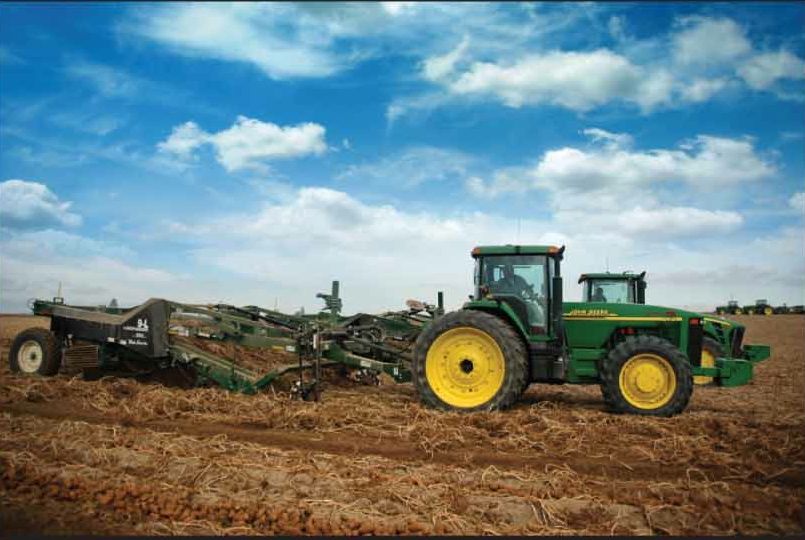What first took me out to the Kimm’s farm was the fact that they grow organic seed potatoes. That operation, run by Yvonne Kimm, became the topic of “No Small Potatoes,” my second podcast.
But at least as interesting to me was what her husband, Jason, has done on the conventional fields to make them more sustainable. After all, no large operation can go organic overnight, and so the question arises: what can a conventional farm do to move away from the overuse of pesticides, herbicides, and even water?
This show, Steps Towards Sustainability, begins and ends with technical breakdowns and on-the-spot fixes—not of recording equipment, but of farm machinery. The recording session began close to an hour after the scheduled start, because a breakdown of harvest equipment kept everyone in the middle of the field until the problem was solved, and “everyone” included my interviewee, Jason Kimm. This isn’t unusual; it’s normal.
When we did get to talk, I learned a lot. Jason has saved hugely on irrigation costs and water use by enclosing what used to be open ditches, and by upgrading his irrigation equipment. He’s cut the use of herbicides by lowering the pH of the water he mixes them in; and he does not use pesticides on a routine schedule.
The show was recorded in a truck, a field, and a windrower, which is a huge machine that digs four, six, or eight rows of potatoes in a single pass. It’s an impressive piece of equipment, but even more impressive was the way Jason drove it: looking backwards over his shoulder at the potatoes tumbling down the conveyor belt, and only occasionally glancing forwards, the direction we were moving. It wasn’t clear to me how he stayed on track, avoiding both a major crick in his neck and the guy (his father, I think) who walked directly in front of us at one point. (You can see someone else doing this in the photo at the top of this post.)
It really was an eye-opening experience for me.
Jason Kimm, son, grandson, nephew, brother, and quite possibly father of potato farmers in Montana’s Gallatin Valley.


 Subscribe to RSS feed
Subscribe to RSS feed


